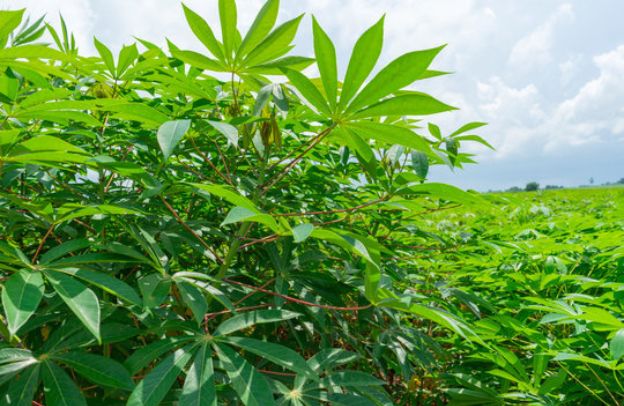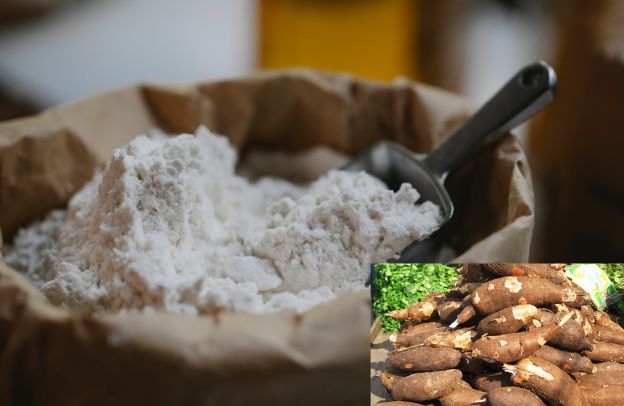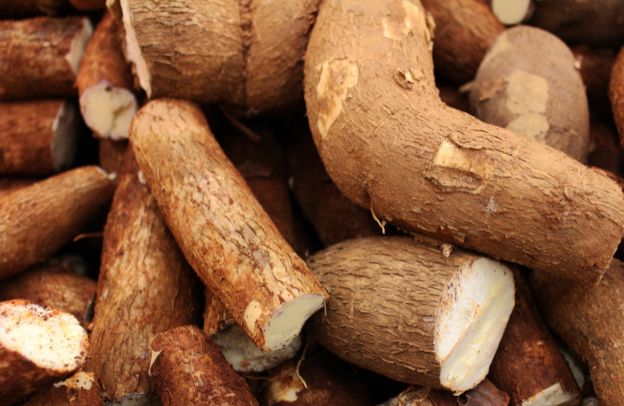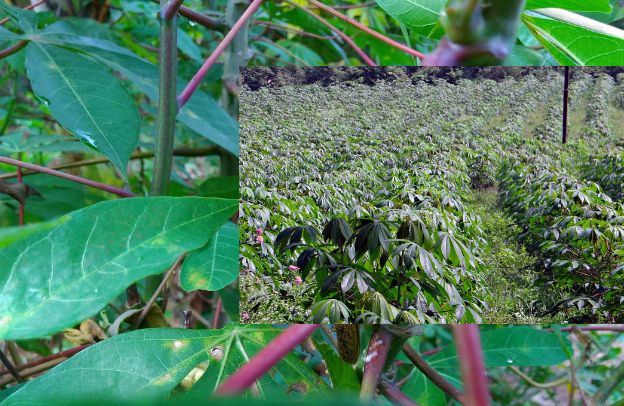Cassava Leaves: Unlocking The Nutritional Power Of Cassava Leaves In Human Nutrition

Cassava leaves have been used in many traditional medicines such as the Yoruba of Nigeria for centuries. The leaves have also been shown to help prevent diabetes, heart disease, and some cancers. Cassava leaves’ fiber content aids digestion, particularly in the large intestine, offering notable benefits. These include preventing anemia, enhancing breast milk quality, and averting constipation.
Want to learn more about storytelling? Start by downloading the first chapter of The Storytelling Mastery.
Unveiling the Nutritional Prowess of Cassava Leaves
Over the years, cassava leaves, integral to traditional cuisines in various cultures, have garnered attention for their remarkable nutritional content.
Renowned for their high vitamin C content, surpassing even that of oranges, and boasting potent health benefits, these leaves emerge as a powerhouse in the realm of human nutrition.
Originating from the heart of Africa, cassava leaves offer a unique blend of nutrients, but their consumption demands careful preparation due to cyanogens that could pose health risks if not properly processed.
See also Processing Cassava for Increased Profit: A Guide for Nigerian Farmers
The following is from What to Know about Cassava: Nutrition and Toxicity, an article on Medical News Today.
“Cassava is an essential energy source and contains nutrients, such as protein, calcium, and fiber. People should not eat it raw, as there is a risk of toxicity due to naturally occurring forms of cyanide.”
The article advises against eating raw cassava which contains cyanide. That is because Cyanide is toxic to ingest humans, so it is vital to prepare it correctly.
The article added that there are two types of cassava: sweet and bitter cassava. Bitter cassava is hardier but has a much higher cyanide content. Most of the cassava used in the United States is sweet.
Rich Nutritional Profile, Lingering Risks
While cassava leaves boast an impressive array of proteins, minerals, and vitamins, their inherent cyanogenic compounds necessitate cautious handling.
The presence of cyanogens underscores the importance of thorough processing, which involves natural fermentation and cooking to mitigate health risks.
Despite these challenges, cassava leaves stand as a versatile source of fiber, potassium, and calcium, enriching diets and potentially serving as a tool for detoxification. Now, here are five benefits of cassava leaves for health:
- Rich in Antioxidants: Cassava leaves are packed with antioxidants such as flavonoids, polyphenols, and carotenoids. These compounds help neutralize harmful free radicals in the body, reducing oxidative stress and inflammation. Antioxidants play a crucial role in preventing chronic diseases like cancer, cardiovascular diseases, and neurodegenerative disorders.
- Source of Essential Nutrients: Cassava leaves are a nutritional powerhouse, containing high levels of vitamins and minerals such as vitamin C, vitamin A, calcium, iron, and folate. These nutrients are essential for maintaining overall health, supporting immune function, promoting healthy skin, aiding in blood clotting, and preventing birth defects.
- Aids Digestive Health: The high fiber content in cassava leaves promotes healthy digestion and prevents constipation. Fiber adds bulk to stool, making it easier to pass through the digestive tract. Additionally, cassava leaves contain resistant starch, which acts as a prebiotic, feeding beneficial gut bacteria and promoting a healthy gut microbiome.
- Potential Anti-diabetic Properties: Studies suggest that cassava leaves may have anti-diabetic properties, helping to regulate blood sugar levels. Compounds found in cassava leaves, such as flavonoids and alkaloids, may enhance insulin sensitivity, improve glucose uptake by cells, and inhibit enzymes involved in carbohydrate digestion, leading to better blood sugar control.
- Cardiovascular Health: Regular consumption of cassava leaves may promote heart health due to their low cholesterol and high potassium content. Potassium helps regulate blood pressure by counteracting the effects of sodium and relaxing blood vessel walls. Additionally, the antioxidants in cassava leaves may protect against the oxidation of LDL cholesterol, reducing the risk of atherosclerosis and cardiovascular diseases.
Incorporating cassava leaves into your diet can provide a range of health benefits, but it’s essential to prepare them properly to mitigate any risks associated with cyanogenic compounds. Enjoy cassava leaves as part of a balanced diet to reap their nutritional rewards and support overall well-being.
A Staple in Global Nutrition
With an estimated 500 million people across 80 countries, including regions like Sierra Leone, incorporating cassava into their diets, the significance of this crop transcends borders.
See also The Economic Value of Cassava Farming in Nigeria: Opportunities and Challenges
However, awareness of the toxic compounds within cassava remains crucial, highlighting the importance of proper preparation methods to unlock its nutritional benefits fully.
Safely Harnessing the Nutritional Potential
Preparing cassava leaves entails boiling them to neutralize toxicity, transforming them into a nutritious base for various culinary endeavors.
By subjecting the leaves to this process, they are rendered safe for consumption, thus laying the foundation for their incorporation into diverse culinary creations.
Boiling not only enhances their safety but also amplifies their nutritional value, making cassava leaves a wholesome addition to balanced diets while mitigating the risk of cyanide poisoning.
This vital step ensures the safety and healthfulness of incorporating cassava into diets, protecting against potential cyanide poisoning.
Diverse Culinary Applications
From hearty stews to nutritious soups, cassava leaves find their way into a myriad of dishes across different cultures.
In Sierra Leone and Nigeria, for instance, cassava leaves serve as a flavorful sauce, complementing staple foods like yams, potatoes, or rice. See cassava leaves a global palate.
Beyond Africa, cassava leaves feature prominently in cuisines worldwide. From the aromatic coconut sauces of East Africa to the vegetarian delights of rural Java, the versatility of cassava leaves transcends geographical boundaries, offering a nutritious addition to diverse culinary traditions.
In Indonesia, these leaves grace the tables of rural villages, offering a sustainable source of nourishment year-round. If you are traveling out of your country be prepared to embrace this delicious meal in some unexpected places.
Other food cassava can be turned into
Here’s the list of foods that people can make using cassava:
- Cassava Bread: This can either contain cassava flour exclusively or a combination of cassava and wheat flour.
- French Fries: Sliced cassava fried until golden and crispy.
- Mashed Cassava: Boiled cassava mashed into a creamy consistency.
- Cassava Chips: Thinly sliced cassava chips, fried or baked until crunchy.
- Cassava Bread Soaked in Coconut Milk: Cassava bread soaked in rich coconut milk for added flavor and moisture.
- Cassava Cake: A sweet dessert made from cassava, coconut milk, and sugar, often topped with shredded coconut.
- Cassava in Coconut Sauce: Cassava cooked in a savory coconut sauce with spices and herbs.
- Yuca con Mojo: A traditional Cuban dish combining cassava with a zesty sauce made from citrus juices, garlic, onion, cilantro, cumin, and oregano.
- Tapioca: A popular dessert made from cassava starch pearls, cooked and served in various sweet dishes.
- Starch and Flour Products: Cassava starch and flour can be used as gluten-free alternatives in baking, including bread-making.
In addition to these culinary uses, cassava can find its way into various other applications:
- Feeding Animals: Cassava serves as a nutritious feed for livestock.
- Medications: Certain compounds extracted from cassava are utilized in pharmaceuticals.
- Manufacturing: Cassava is used in the production of fabrics, paper, and building materials such as plywood.
- Bioethanol Production: Cassava is a potential source of bioethanol for fuel production.
Moreover, ongoing research explores the possibility of utilizing cassava in industrial processes, such as:
- Replacement for High Fructose Corn Syrup: Cassava or tapioca syrup may serve as alternatives to high fructose corn syrup in food manufacturing.
- Industrial Alcohol Production: Cassava holds promise as a source of alcohol for manufacturing products like polystyrene and polyvinyl chloride.
Through its versatility and potential applications, cassava emerges as a multifaceted crop with implications ranging from culinary delights to industrial innovation.
Conclusion: Embracing the Bounty of Cassava Leaves
In conclusion, the nutritional prowess of cassava leaves presents a compelling case for their integration into global diets.
While their cyanogenic nature necessitates caution, proper preparation unlocks a wealth of health benefits, from bolstering immune systems to reducing the risk of chronic diseases.
As awareness grows and culinary traditions evolve, cassava leaves stand poised to enrich diets and nourish communities worldwide.
Want to learn more about storytelling? Start by downloading the first chapter of The Storytelling Mastery.





